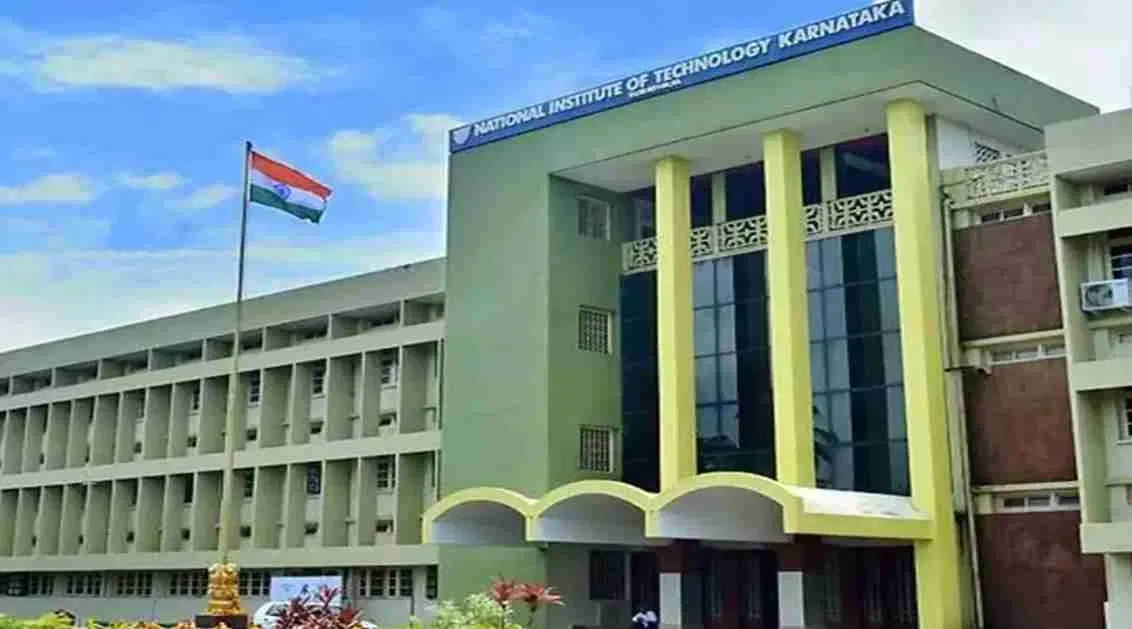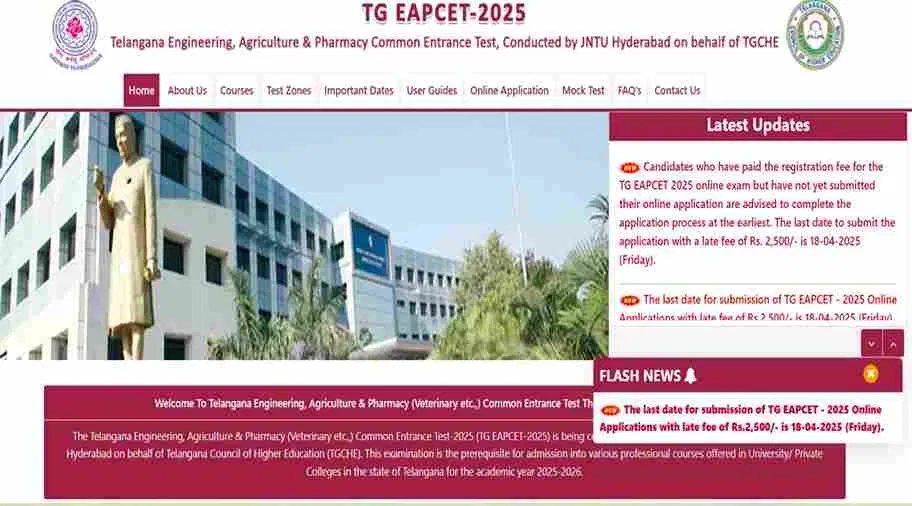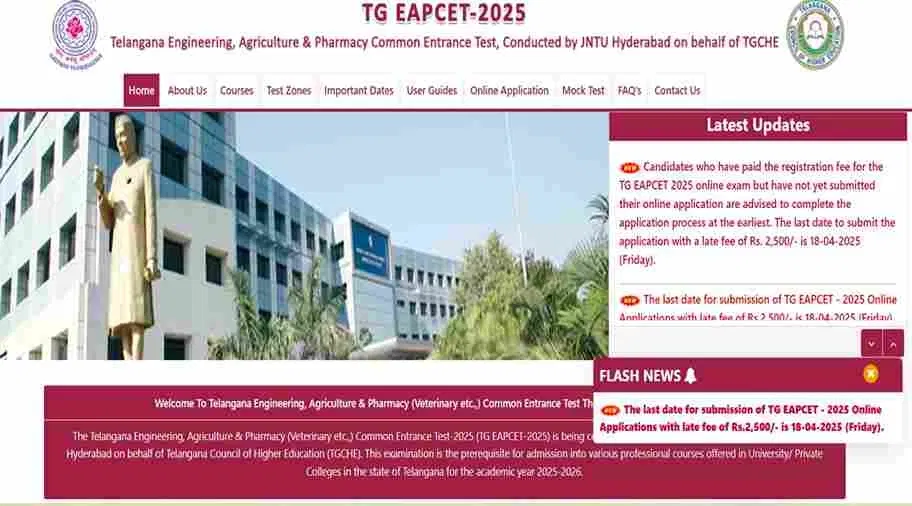The students can get to know the JEE Main vs NEET difference to choose the career paths after finishing their 12th grade in science group. The syllabus for each exam is also available for the students to anticipate the topics covered in each entrance exam.
Table of Contents
As students graduate from Class 12, one common question that often comes to mind is: "Should I choose Engineering or Medicine?" Many also wonder, "Which is better — JEE Main or NEET?". NEET is for students interested in pursuing a medical career, while JEE Main is for those aiming for engineering. Both are national-level entrance exams typically taken after Class 12 to enter science-related fields.
When it comes to difficulty, NEET is considered slightly tougher than JEE Main but easier than JEE Advanced. However, because there are fewer seats in NEET, the competition is intense, making it harder to secure admission. Even after Class 10, students face a tough decision about which stream to choose — science for engineering or medicine. A good score in NEET can help secure admission to top medical colleges, while performing well in JEE can lead to entry into prestigious engineering institutes.
Both exams are highly competitive, with thousands of students appearing each year. The challenge of choosing between them isn't just about the difficulty level but also about the different career paths they lead to. To help you make an informed decision, we will break down the differences between JEE Main vs NEET, discuss their difficulty levels, and explore the career opportunities they offer.
What is JEE Main?
Joint Entrance Examination Main, or JEE Main, is a national-level entrance exam conducted for admission to top-notch engineering institutions in India like IITs, NITs, IITs, etc. This computer-based test is administered by the National Testing Agency (NTA). This year, JEE Main will be conducted in two sessions. JEE Main syllabus 2025 includes topics from three major subject areas- Physics, Chemistry and Mathematics.
Read More: What Are The Benefits of Taking-up JEE Main 2025?
What is NEET?
National Eligibility cum Entrance Test (NEET) is a national-level entrance examination for students who intend to pursue undergraduate and postgraduate medical programs (MBBS, MD, MS) and dental courses (BDS, MDS) in government or private colleges in India. Conducted by the National Testing Agency (NTA), it is the most sought-after medical entrance exams in India. NEET 2025 is scheduled to be conducted in May 2025. NEET exam evaluates candidates' knowledge in three subjects- Biology, Chemistry and Physics.
Read More: Difference between NEET UG and NEET PG
JEE Main vs NEET: Key Difference
The primary difference between JEE Main vs NEET lies in their purpose. JEE Main is for students pursuing engineering, while NEET is for those aiming to build a career in medicine. Another key distinction is the exam pattern — JEE places a strong emphasis on Mathematics, whereas NEET focuses more on Biology.
Both exams are highly competitive national-level tests that are challenging to crack. What sets them apart is the career path they lead to: JEE opens the way to top engineering colleges, while NEET is the gateway to reputed medical institutions. The subject weightage is another significant difference. JEE gives priority to Math, while NEET focuses on Biology. There are also differences in subject distribution, exam frequency, and patterns.
For a detailed comparison, refer to the table below. It's important to note that JEE has two stages: JEE Main and JEE Advanced.
| Basis | JEE Main | NEET |
|---|---|---|
| Abbreviation for | Joint Entrance Examination | National Eligibility cum Entrance Test |
| Type | Computer-based test | Pen and paper-based |
| Subjects/ skills | Paper 1: Physics, Chemistry and Mathematics | Biology, Chemistry and Physics |
| Paper 2: Mathematics, Aptitude, Drawing and Planning | ||
| Used for | Admission to undergraduate Engineering and architecture courses in 31 NITs, 23 IITs and other colleges. Also serves as a prelim selection for JEE Advanced. | Admission to undergraduate Medical courses in government and private colleges. Qualifying it is mandatory for pursuing the same abroad. |
| Score Range | -75 to 300 | -180 to 720 |
| Frequency | 2 times in a year | Once a year |
| Restriction | Within 3 years of passing class 12th | Applicant must be at least 17 years old (if more than 25 years old, then subjected to the Supreme Courts’ orders) |
| Languages | Assamese, Bengali, English, Gujarati, Hindi, Kannada, Malayalam, Marathi, Odiya, Punjabi, Tamil, Urdu and Telugu. | Assamese, Bengali, English, Gujarati, Hindi, Kannada, Marathi, Oriya, Tamil, Telugu, Urdu |
| 12th Class Cutoff for Eligibility |
General - 75% | General - 50% |
| Reserved - 65% | OBC - 45% | |
| SC/ST/PWD - 40% |
Also Read: How to Crack NEET Exam 2025?
Which is Tough NEET or JEE Main?
JEE Main and NEET both are tough exams to crack. As these exams are conducted annually and with the constraints of limited seats, cracking these exams becomes more challenging. Furthermore, the number of seats in medical institutes is much lesser than in engineering colleges. Hence, even if the questions' difficulty level is less in NEET than JEE Main, it makes the exam more competitive and adds another dimension to the difficulty for NEET.
However, if we look at the question which is tough JEE Main vs NEET from a general perspective, the answer to it will be much different. Below is the sequencing of papers from easiest to toughest:
- Least Difficult - JEE Main
- Difficult - NEET
- Most Difficult - JEE Advanced
Although all this becomes irrelevant if you have a particular career path already set out for yourself already. In that case, you have to take on the relevant paper to that career irrespective of the difficulty level.
Read More: Minimum Marks in JEE Main to Qualify for JEE Advanced 2025
JEE Main vs NEET: Which is easy to crack?
Both JEE and NEET are challenging national-level entrance exams. While NEET questions might be slightly easier compared to JEE Main, the limited number of medical seats makes NEET more difficult overall. The difference in seat availability between medical and engineering colleges adds to this challenge.
When it comes to deciding which exam is easier, opinions vary. Generally:
- Easiest: JEE Main
- Moderately Difficult: NEET
- Most Difficult: JEE Advanced
However, the difficulty of the JEE Main vs NEET exams depends largely on an individual's abilities and preparation strategies.
Since both exams are conducted only once a year and offer limited seats, they are highly competitive.
Also Read: How to Complete NEET 2025 Syllabus Before Time?
Are JEE Main Questions Repeated in NEET?
When a student is giving both papers, there is a common question that arises in one’s mind: Are JEE Main questions asked in NEET? As we know that both papers have chemistry and physics as their common subjects, so that question is only natural to come to one’s head. Well, although the subject and even the course that one has to study may align together, the difficulty level varies.
If one is preparing for JEE Main, it will support the preparation of NEET and visa versa, but going by the assumption that enough questions will be repeated to make a difference will have unfavourable effects. One will have to prepare for both the JEE Main vs NEET so that they both will help the other paper with supportive and complementary topics and help solve the papers speedily.
Read More: List of Important Physics Formulas for NEET 2025
JEE Main 2025 Eligibility Criteria
The JEE Main eligibility criteria 2025 include age criteria, number of attempts, qualifying marks, and other aspects. To appear for B.E./B.Tech (Paper 1), it is compulsory for candidates to have studied Physics and Mathematics as well as one subject from Chemistry, Biology, and Biotechnology.
Moreover, B. Arch. (Paper 2) requires students to have studied and passed Physics, Chemistry, and Maths in class 12th. Further, students must have studied Mathematics at the 10+2 level if they are appearing for B. Planning (Paper 3). Take a look at the detailed eligibility criteria for JEE Main 2025 below:
| Criteria | Eligibility for General and OBC | Eligibility for Reserved Categories |
| Minimum Qualifying Marks | 75% aggregate marks in 12th | 65% aggregate marks in 12th |
| Age Limit | There is no age restriction for JEE Main 2025. It is recommended, however, that students ensure the age limit requirements of the institution, they are applying for. | |
| Maximum Number of Attempts | Twice a year, for three consecutive years | |
| Number of Subjects in Qualifying Exam | 5 Subjects | |
| Year of Passing Class 12 | Passing after 2023 or 2024 or currently appearing in 2025 | |
Read More: JEE Main Number of Attempts
Eligibility Criteria for NEET 2025
NEET eligibility criteria states all the requirements that medical aspirants must meet in order to appear for the exam.The criteria involves factors like age, academic qualifications, nationality, number of attempts, etc. The information brochure released by NTA states that the upper age limit for NEET UG has been removed for all categories. Here is the eligibility criteria for NEET 2025:
| Criteria | Eligibility |
| Domicile | Citizens of India can apply for NEET 2025 |
| If the candidate does not stay in India, he or she must be an Overseas Citizen of India (OCI) to be eligible to apply for NEET 2025 | |
| Minimum Age Criteria | 17 years |
| Maximum Age Limit | NMC has removed the upper age limit |
| Minimum Qualification | The candidate must have cleared class 12th with at least 50% aggregate marks, PWD-45%, and SC/ST-40% |
| Maximum Number of Attempts | There is no restriction on the number of attempts within the prescribed age limit. |
| Aadhar Card is Not Compulsory | According to the order of Supereme Court, a candidate is not required to have an Aadhar Card to apply for NEET 2025. Therefore, non-residents of India are also eligible to apply for the exam. |
Read More: 6 Month Most Realistic Strategy For NEET 2025 Exam







![Indian Institute of Technology, [IIT] Bombay](https://media.getmyuni.com/azure/college-image/small/indian-institute-of-technology-iit-bombay.jpg)

![Indian Institute of Technology, [IIT] Kharagpur](https://media.getmyuni.com/azure/college-image/small/indian-institute-of-technology-iit-kharagpur.jpg)
![Indian Institute of Technology, [IIT] Roorkee](https://media.getmyuni.com/azure/college-image/small/indian-institute-of-technology-iit-roorkee.jpg)



































POST YOUR COMMENT